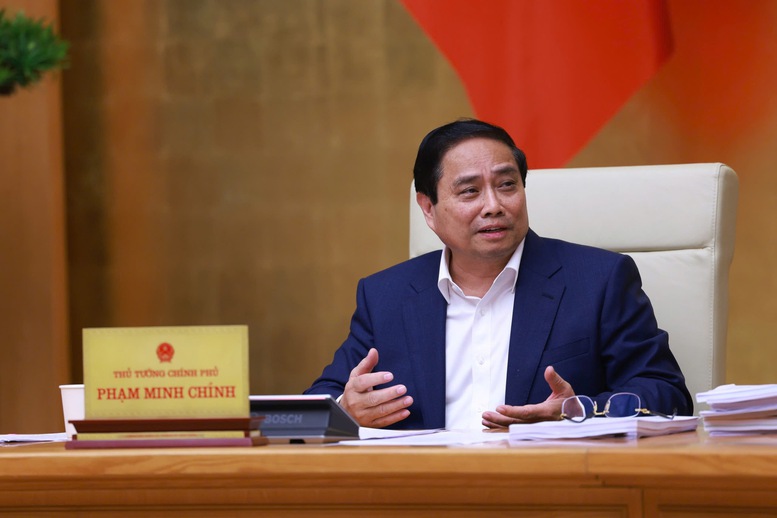
Prime Minister Pham Minh Chinh requested to focus resources and be determined to basically complete the removal of "bottlenecks" caused by legal regulations in 2025 - Photo: VGP/Nhat Bac
On May 22, Prime Minister Pham Minh Chinh chaired a special Government meeting on law making in May 2025.
Attending the meeting were members of the Politburo , members of the Party Central Committee, Deputy Prime Ministers, Deputy Secretaries of the Government Party Committee, ministers, heads of ministerial-level agencies, government agencies, leaders of ministries, ministerial-level agencies, and government agencies.
Decentralize and delegate more power, assign work to the best place
At the meeting, the Government listened to reports and gave opinions on handling problems arising in the drafting of decrees on decentralization, delegation of power, and determination of authority associated with the organization of two-level local governments.
Commenting on this issue, Prime Minister Pham Minh Chinh spent time analyzing a series of specific examples from practice. Recalling lessons from many cases that resulted in many officials being disciplined, including criminally prosecuted, the Prime Minister said that the cause was due to superiors "embracing" specific tasks without decentralizing and delegating authority to subordinates.
The Prime Minister also gave an example: the Ministry of Science and Technology recently transferred the Hoa Lac High-Tech Park to Hanoi for management and emphasized that the Ministry must design policies and decentralize management to localities so that the whole country can have dozens more such high-tech parks.
Therefore, the Prime Minister stated that it is necessary to thoroughly grasp the spirit of decentralization and delegation of power from the top to the bottom, along with appropriate resource allocation, improving the implementation capacity of the bottom, designing tools to strengthen inspection, supervision, and control of power; at the same time, strongly shifting from pre-inspection to post-inspection.
Along with decentralization and delegation of power to localities, ministries, branches and agencies at the central level play a constructive role, not doing specific work but focusing on implementing 6 groups of state management tasks: (i) developing strategies, planning and plans; (ii) building institutions and laws for management and development; (iii) building mechanisms and policies to mobilize resources for rapid and sustainable development of sectors and fields; (iv) designing tools to inspect, monitor and control power; (v) evaluating, summarizing practices, drawing lessons, building theories, replicating good models and good practices and removing difficulties and obstacles; (vi) implementing emulation and commendation work, handling discipline promptly, accurately, fairly, reasonably and effectively.
The Prime Minister noted that it is necessary to clearly define the agencies responsible for the management areas and closely coordinate between agencies, avoiding overlap or legal gaps in the management areas. Central ministries and branches design regulations, policies, standards, and norms, for example regulations on clean food, clean production, etc. and strengthen supervision and inspection. On a national scale, the ministries will inspect, at the provincial level, the provinces will do it, and at the grassroots level, the establishments will do it.
Continue to review and decentralize more strongly to the level that is closer to reality, closer to the people, closer to the people, does better, more effectively, assign work to the best places, and let the people and businesses do what they do well.
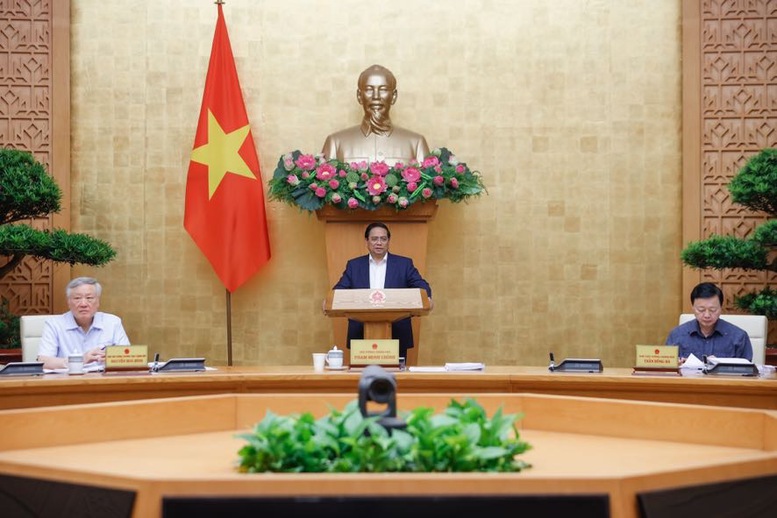
The Prime Minister requested to continue to fundamentally innovate the thinking of law-making in the direction of both ensuring state management requirements and encouraging creativity, liberating all productive forces, and unlocking all development resources - Photo: VGP/Nhat Bac
Research on expanding social housing policy for families with many children
Also at the meeting, the Government reviewed and gave opinions on: Draft Law on Temporary Detention, Temporary Imprisonment and Prohibition from Leaving the Place of Residence; Draft Law on Criminal Judgment Execution (amended); proposal to develop a Law on Judicial Expertise (amended); proposal to develop a Law on Thrift and Anti-Waste; proposal to develop a Law on Food Safety (amended); proposal to develop a Law on Population.
In particular, with the proposal to develop the Law on Thrift and Waste Prevention, the Prime Minister stated that the development of this law aims to implement the Party's policy, the direction of the Politburo, and the General Secretary in promoting waste prevention; transforming the state from passive handling to proactive prevention, containment, and suppression of waste. The Prime Minister proposed to add wasteful behaviors including wasting time and missing development opportunities.
Regarding the proposal to develop the Law on Food Safety (amended), the Prime Minister said that it is necessary to affirm that the field of food safety is directly related to the health and lives of people, so the Ministry of Health must take the lead, and other ministries and sectors must coordinate in this work, ensuring management while meeting development requirements.
The Prime Minister also requested the agencies to urgently submit for promulgation a Decree amending and supplementing a number of articles of Decree No. 15/2018/ND-CP dated February 2, 2018 of the Government detailing the implementation of a number of articles of the Law on Food Safety.
Regarding the proposal to build a Population Law, the Prime Minister emphasized the need to shift the state from the perspective of "population planning" to the perspective of population development and response to population aging. Policies must promote this, paying attention to both quantity and improving population quality, with appropriate incentive policies for childbirth and comprehensive human development in terms of "morality - intelligence - physical health - aesthetics", such as researching and expanding social housing policies for large families and vulnerable groups when having children...
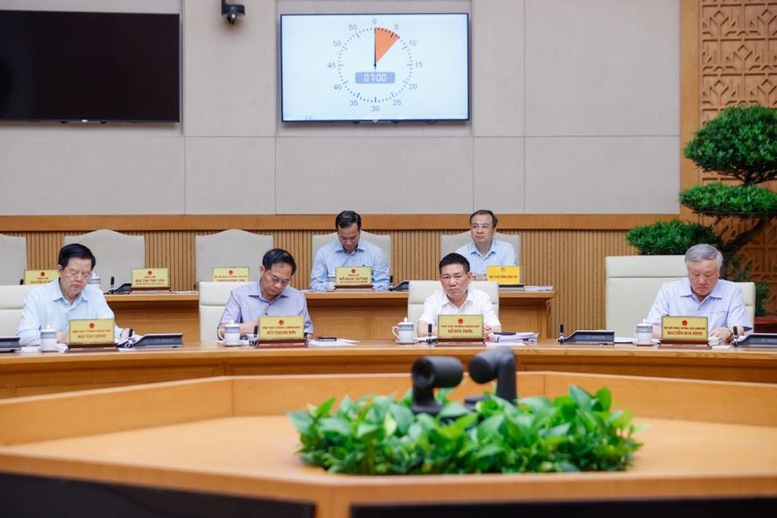
Deputy Prime Ministers attended and spoke at the meeting - Photo: VGP/Nhat Bac
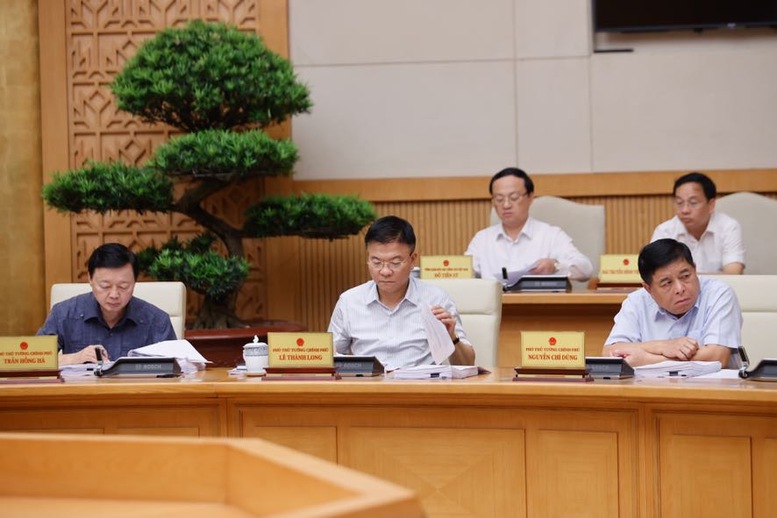
Deputy Prime Ministers attended and spoke at the meeting - Photo: VGP/Nhat Bac
Amend and supplement laws in the spirit of 6 clear
In conclusion, Prime Minister Pham Minh Chinh assessed that the meeting was organized with a mindset and approach that continued to innovate, so it achieved higher efficiency.
The Prime Minister highly appreciated the Ministries of Public Security, Justice, Finance, Health and relevant agencies for actively preparing draft laws, seriously absorbing and explaining; highly appreciated the enthusiastic, responsible, practical and quality comments of the Government members and delegates.
The Prime Minister requested that the ministers direct the drafting ministries to urgently complete the projects and proposals for law making, continue to prioritize time, focus the highest resources, directly lead and direct the completion of the documents to submit to the National Assembly to ensure progress; assign the Deputy Prime Ministers in charge to pay attention to and directly direct the completion of the documents.
Deputy Prime Ministers, ministers, and heads of ministerial-level agencies shall closely coordinate with the National Assembly agencies in the process of examining, explaining, receiving, and revising the draft Law according to the opinions of the National Assembly Standing Committee and National Assembly deputies; promptly report to the Government and the Prime Minister on the receipt and revision of the draft Law according to regulations; if there are still different views, they shall proactively exchange, unify their perceptions, and report to competent authorities.
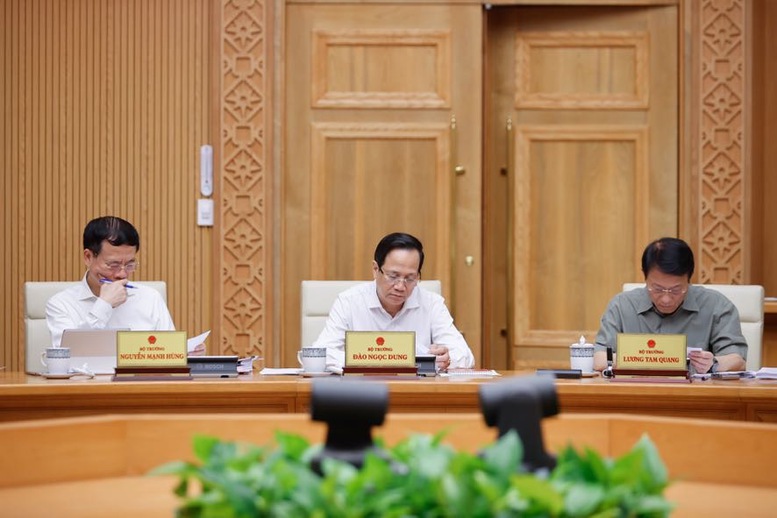
Leaders of ministries and branches attend the meeting - Photo: VGP/Nhat Bac
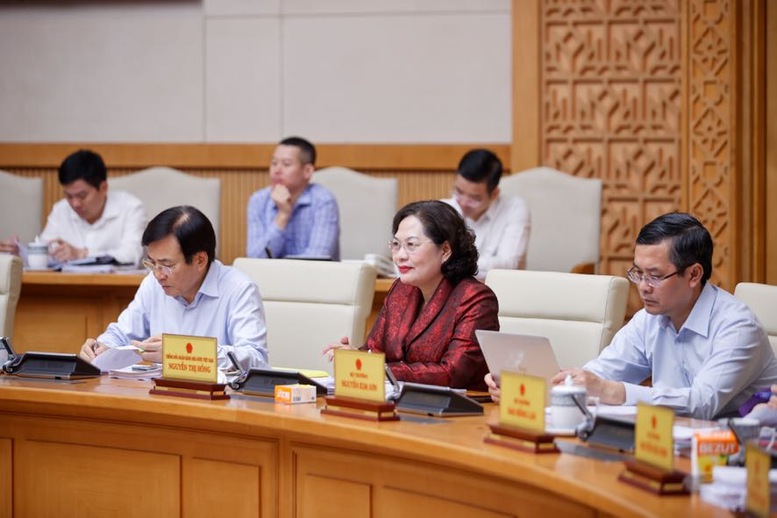
Leaders of ministries and branches attend the meeting - Photo: VGP/Nhat Bac
The Prime Minister requested ministries and agencies to research, propose, and submit to the National Assembly resolutions to promptly handle a number of urgent issues arising in management fields, meeting practical requirements during the period when laws have not been issued.
Requiring ministries, branches and agencies to focus on removing institutional bottlenecks, and by 2025, to basically complete the removal of "bottlenecks" caused by legal regulations, the Prime Minister emphasized a number of important viewpoints . Accordingly, the process of building and perfecting laws must ensure the full institutionalization of the Party and State's guidelines, policies and guidelines.
The amendment and supplementation of laws is carried out in the spirit of 6 clear: Inherited and omitted contents, why; amended and improved contents, why; supplemented contents, why; contents of reduction and simplification of administrative procedures, why; contents of decentralization and delegation of power, specifically what, for whom, why; issues with different opinions and other issues that need to be reported to the Government Standing Committee, the Government, and the Prime Minister for consideration and direction.
Along with that, building new laws in the spirit of 7 clear: How are the Party's guidelines and policies concretized; what are the practical issues that the law has not yet regulated; what are the issues that the law has regulated but is not suitable; what are the problems that need to be resolved; how to simplify and reduce administrative procedures; how to decentralize and delegate power; issues with different opinions that need to be reported to the Government and the Prime Minister.
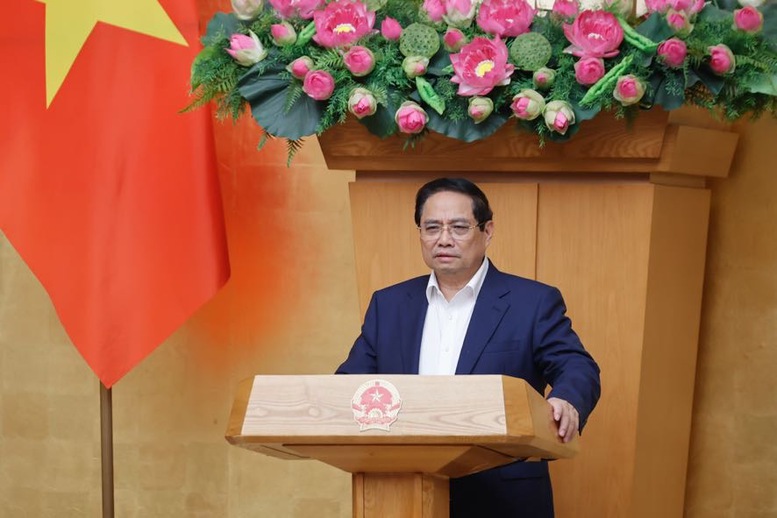
The Prime Minister requested that the amendment and supplementation of laws be carried out in the spirit of 6 clear points, along with that, building new laws in the spirit of 7 clear points - Photo: VGP/Nhat Bac
The Prime Minister requested to continue to fundamentally innovate the thinking of law-making in the direction of both ensuring the requirements of state management and encouraging creativity, liberating all productive forces, and unleashing all development resources; always taking people and businesses as the center, shifting from "management" to "service" thinking, from passive to proactive, flexible in creating development; thoroughly reforming, minimizing cumbersome administrative procedures that cause trouble for people and businesses.
Promote decentralization and delegation of power along with resource allocation, improve local implementation capacity in the spirit of "locality decides, locality does, locality takes responsibility", eliminate the "request - grant" mechanism and the mindset of "not knowing but still managing, if you can't manage then ban".
Law making must be one step ahead, increase predictability, be consistent with reality, and effectively and promptly resolve practical issues and the requirements of rapid development.
The provisions of the law must be stable, highly feasible, of long-term and sustainable value; the law needs to regulate in a framework and principled manner, only regulating issues under the authority of the National Assembly; for contents where the situation still changes a lot in practice, the Government will provide detailed regulations.
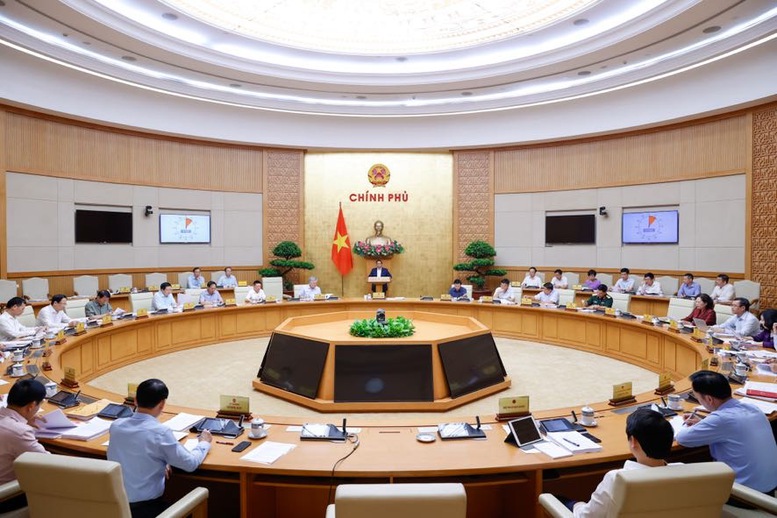
The Prime Minister requested ministries and agencies to research, propose and submit to the National Assembly resolutions to promptly handle a number of urgent issues arising in management fields, meeting practical requirements during the time when laws have not been issued - Photo: VGP/Nhat Bac
Focus on reviewing current legal regulations to propose a law amending many laws to perfect the legal system, ensure consistency and efficiency, avoid legal gaps, and promptly handle problems arising in practice.
Further promote the sense of responsibility and focus on prioritizing all resources in building and perfecting institutions to improve the effectiveness of state management and ensure the humanity of our State in implementing legal policies.
Prioritize resources and have specific, superior policies and regimes for the work of building and enforcing laws, especially the human resources directly and regularly performing these tasks. Take advantage of scientific and technological advances, digital transformation, virtual assistant tools, databases, etc. in building and enforcing laws.
Listen to the opinions of experts, scientists, and practitioners, and absorb the opinions of businesses and people. Continue to refer to international experience and absorb content that is suitable to our country's conditions. Strengthen policy communication, especially communication during the process of building and promulgating laws, creating consensus and effectiveness in the process of building, promulgating and enforcing laws.
Ha Van
Source: https://baochinhphu.vn/thu-tuong-quyet-tam-co-ban-hoan-thanh-thao-go-diem-nghen-the-che-ngay-trong-nam-2025-102250522120708504.htm





![[Photo] Prime Minister Pham Minh Chinh chairs the Government's special meeting on law-making in May](https://vphoto.vietnam.vn/thumb/1200x675/vietnam/resource/IMAGE/2025/5/22/1c880aae96fd4e0894abc47a46fe19ba)
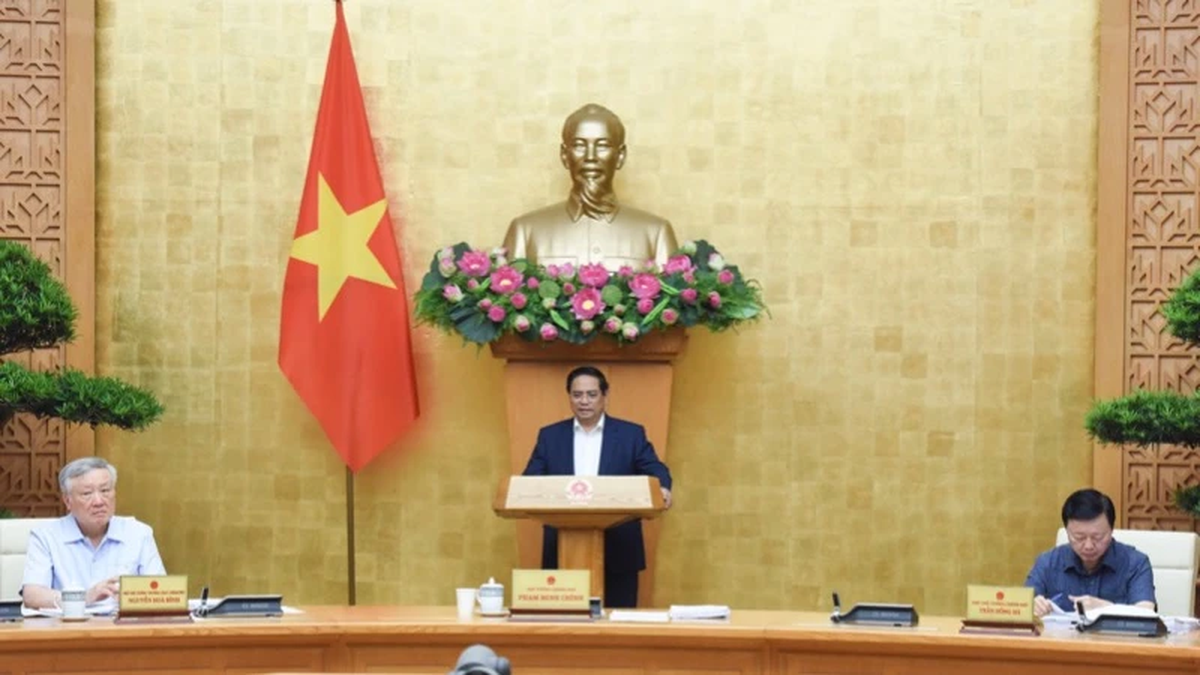
![[Photo] General Secretary To Lam chairs a working session with the Central Internal Affairs Commission](https://vphoto.vietnam.vn/thumb/1200x675/vietnam/resource/IMAGE/2025/5/22/3b7790f499da45b2803d8ae253207ef1)
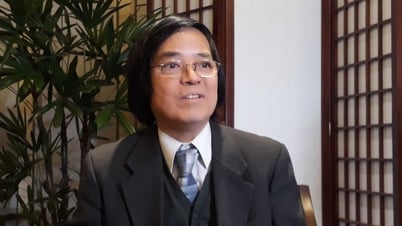


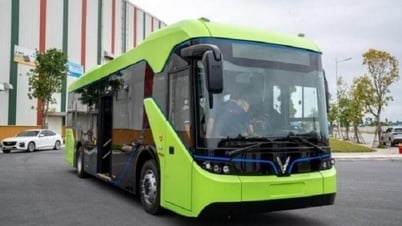

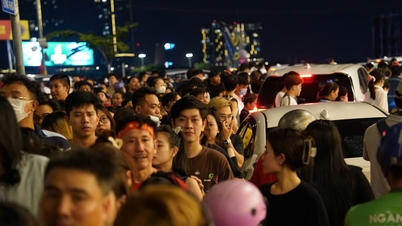


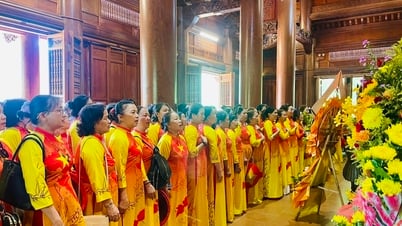




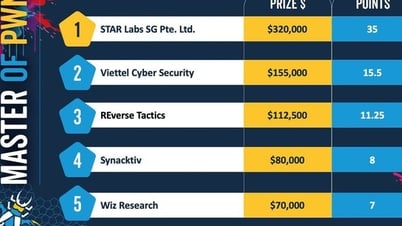

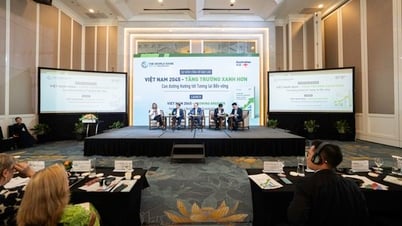
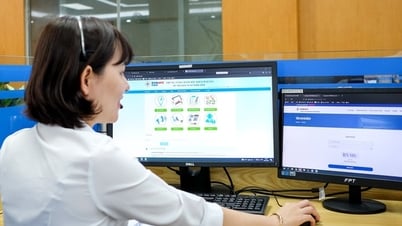
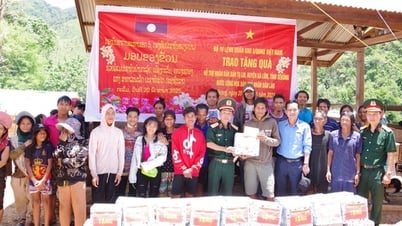











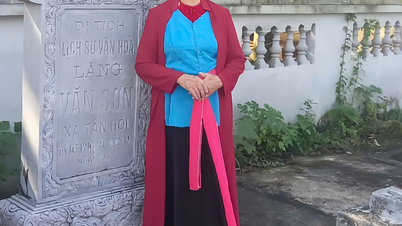













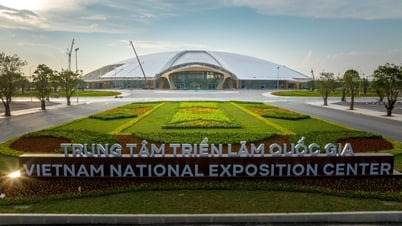

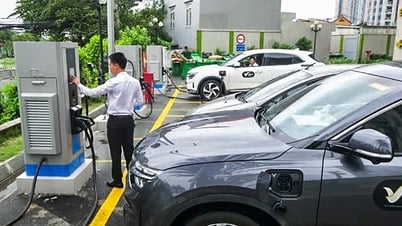









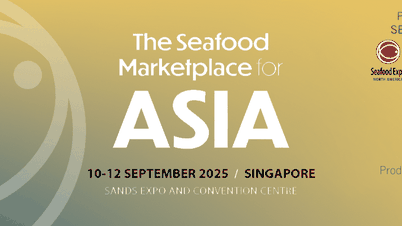




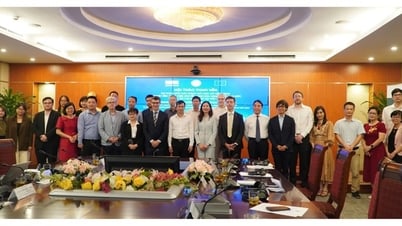


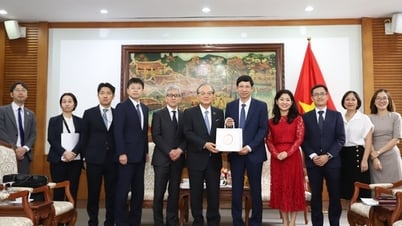
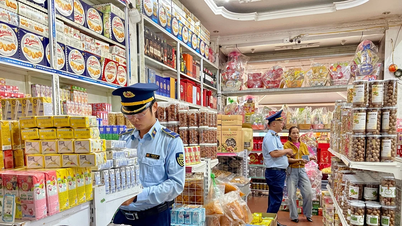

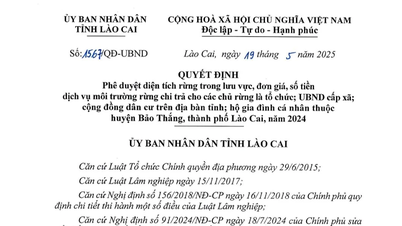

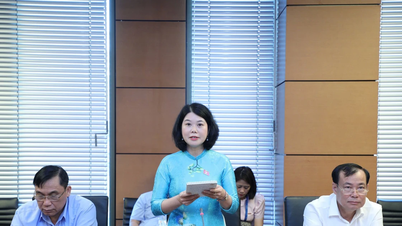



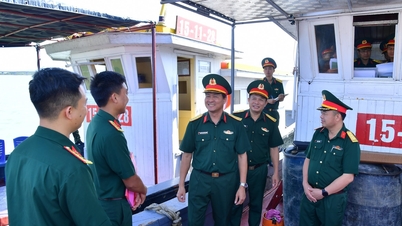

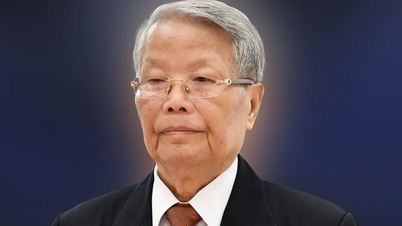



![[Podcast] Week introducing more than 500 OCOP products in Hanoi](https://vphoto.vietnam.vn/thumb/402x226/vietnam/resource/IMAGE/2025/5/22/d144aac2416744718388dbae3260e7fd)




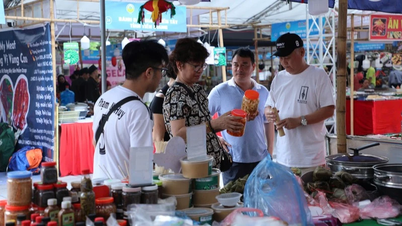
Comment (0)